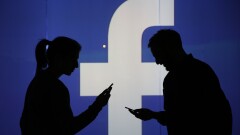The recent attack on the U.S. Capitol building shed light on how much power payment companies have to enable or stifle political violence.
The incident and response comes at a hectic time, as the House finalizes its second impeachment of President Donald Trump, while President-elect Joe Biden seeks bipartisan favor for a
Numerous organizations were forced to account for how the attack happened, and how to prevent additional violence given intelligence warnings of a
Financial services firms can enable or block activities as mundane as paying for transportation and lodging, as well as for more blatantly political operations.
These companies' moves may have been overshadowed by the House impeachment proceedings, but with the Senate not planning to continue those proceedings during Trump's term, these actions represent some of the most immediate consequences of the rioting at the Capitol building.















